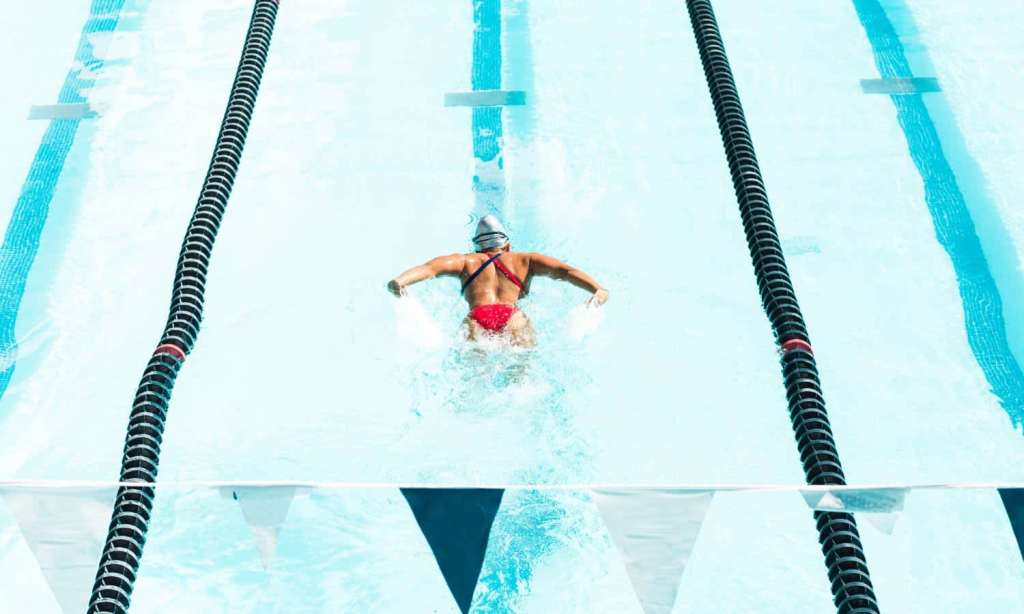Update: March 23, 2020
Australian Olympic Athletes have finally been given some clarity on the status of this year’s games.
Since the COVID-19 pandemic has spread across the world, many have wondered whether the Tokyo Olympics would go ahead in July.
Aussie athletes are now being told to prepare for the Olympics to take place next year.
“Australian athletes should prepare for a Tokyo Olympic Games in the northern summer of 2021,” the Australian Olympic Committee (AOC) said in a statement.
“The AOC believes our athletes now need to prioritise their own health and of those around them, and to be able to return to the families, in discussion with their National Federations.”
While the International Olympic Committee (IOC) hasn’t officially announced a postponement, it is being considered.
Canada has also announced that it won’t be sending its athletes to the summer Olympics and has called on the IOC to postpone the event.
“While we recognise the inherent complexities around a postponement, nothing is more important than the health and safety of our athletes and the world community,” said the Canadian Olympic Committee and Canadian Paralympic Committee in a joint statement.
“This is not solely about athlete health — it is about public health.”
February 22, 2020
Hype’s beginning to build around the 2020 Summer Olympics scheduled to kick off in July in Tokyo.
In addition to the news of an eSports competition occurring in the lead-up to the big event, we can expect to see a number of other fun changes coming to one of the world’s biggest sporting events, with five new sports added to the timetable.
The Olympics’ traditional sports may be a little out-of-touch for the average person (we’re looking at you fencing, archery, and superhuman 100m sprint), but the new additions add to the list of sports you’ve likely participated in. With surfing and skateboarding making the cut, it’s exciting to see that one of the most institutionalised of competitions is starting to recognise other activities as athletic — a change we can all welcome.
There’s no denying that these new additions require extreme athleticism as well, and as they’re a bit more familiar to everyday life, we have a feeling they’ll be even more fun to watch. For a full breakdown about every new sport added to the Olympics for 2020, keep scrolling.
2020 Olympic Sports
Baseball/Softball
As the most popular sport in Japan, it doesn’t come as a surprise that baseball has been added to the agenda this year. At the Olympics, we can expect to see the sport follow its usual format with two teams of nine competing to get more runs, and therefore, score more points. For female athletes, the competition will take the form of softball. Using a larger ball and smaller field. This is the version typically played by women around the world.
Sport Climbing
Think rock climbing, but on man-made courses. The competition will be comprised of three categories, with each athlete getting a cumulative score based on their performance in each:
- Speed climbing: Speed climbing is exactly what it sounds like. Each athlete will compete on a wall to see who can climb it the quickest.
- Bouldering: The bouldering competition will measure how many short courses climbers can complete in a given amount of time. Each wall will be 4m high and the climbers will compete without the use of ropes “free climbing” their way through the course.
- Lead Climbing: In this event, the climbers will compete to see who can get the furthest up an extremely difficult 12m wall. The competition will last six minutes, with each climber striving to climb further than the others.
Surfing
Unlike the controlled environment of Sport Climbing, the surfing competition will be left to the elements. Set to take place at the famous Chita’s Shidashita Beach, the event will span a two-day period, functioning in the same way as World Surf League Competitions. Two surfers will represent each country, largely decided on by their performance in other international competitions.
Skateboarding
Three skaters from each country will compete in two categories and judged by the difficulty of the moves they perform. The two categories, Park and Street, will emulate the settings of the skatepark and urban environment respectively.
Karate
According to GQ, “It’s likely that Tokyo 2020 will be the only time in which we’ll be able to see Japanese martial art Karate performed as an Olympic event.” Though it might not earn a permanent spot in the Olympics of future years, we have a feeling it will be a great event to watch this time around.
The competition will feature two distinct forms of Karate: Kumite and Kata. Kumite is a sparring event, where athletes will earn points for hits and moves performed. Alternatively, Kata will showcase individual fighters displaying a number of moves like jumps, flips and spins.
—
Even if you’ve never spent a weekend surfing or spent your youth skateboarding around the city, we have a feeling that these new events will reach a new audience. For those of us who haven’t lived in a world entrenched in athleticism, seeing these new sports on the worldwide stage will be both inspiring and entertaining.
If nothing else, it’s cool to see these events receive recognition as worthwhile activities, where they might have otherwise flown under the radar.







